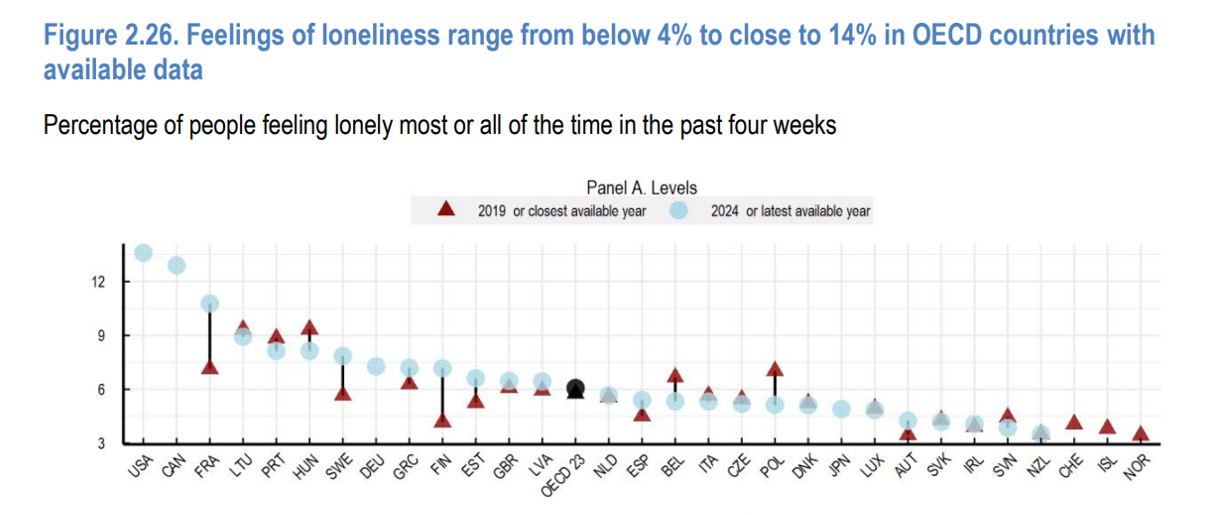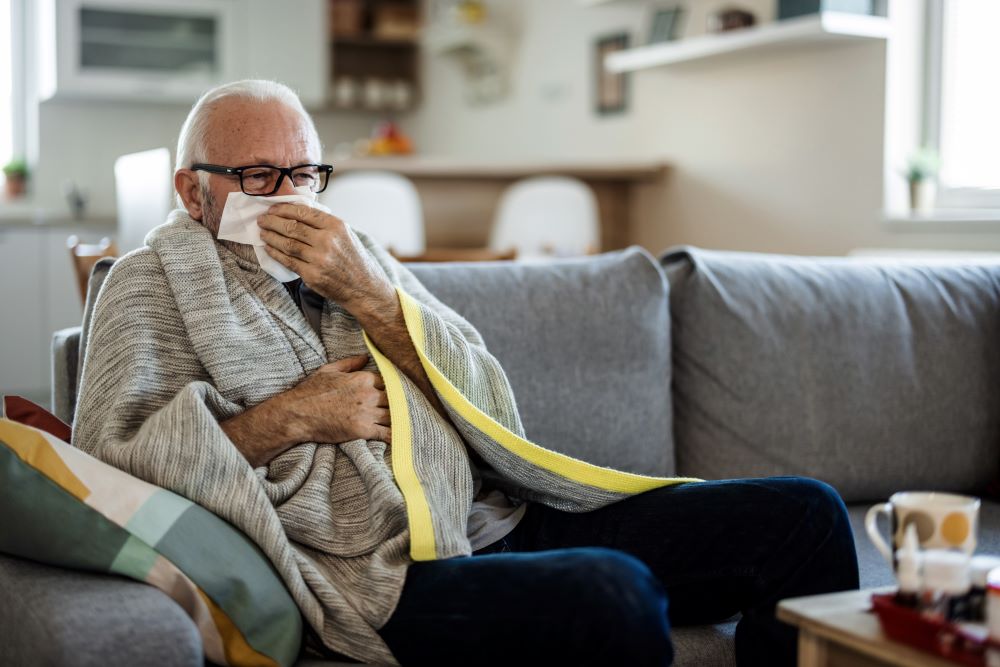A new report from the OECD asks the question, “How’s Life?” with the tagline letting us know the plotline focuses on “well-being and resilience in times of crisis.” 
The Organization of Economic Cooperation and Development (OECD) has tracked the well-being of member nations for the past six years, taking a broad view on the definition of holistic health — including physical, mental, financial, and social aspects of people living in OECD countries.
The first “How’s Life?” report was published at the height of the global financial crisis; the authors of this report introduce it saying that, “the latest edition comes at an equally challenging time.”
The paper runs over 100 pages, and I highly recommend it as required reading if you are interested in understanding trends in both global and your personal favored nation’s health status across these many dimensions covered by the research. In this post, I will focus on mental and social health statistics that may shed light on the living context for U.S. voters in the 2024 Elections with my goal of understanding my fellow American health citizens.

First, see the OECD Well-being Framework illustrated here. The study assesses a range of dimensions for current well-being, such as financial health (income and wealth), work and job quality, housing, health status, environmental quality, social connections, and civic engagement among other factors.
Looking at future well-being, the study brings together the granular factors into four key categories: natural capital, economic capital, human capital, and social capital.

Upon reading the 109-page report, the data point and chart that struck me hardest was this one, responding to the question of people saying they felt lonely most or all of the time int he past four weeks. Looking all the way to the left of this chart, you find that U.S. ranks top in the percentage of people feeling lonely compared with peers living in the other 22 OECD countries covered in this research question.

In the U.S., I’ve also been addressing the tragic epidemic of the Deaths of Despair due to suicide, accidents, and drug overdoses.
For physical health, the OECD observes, “the gap in life expectancy by education was replaced with fatalities from suicide, acute alcohol abuse and drug overdose” — that is, the Deaths of Despair.
In this year’s How’s Life? assessment, we see in the chart (labeled Figure 2.19) the trends among 23 OECD nations for the Deaths of Despair. In some nations, there has been progress in reducing these avoidable deaths, but progress was stalled during the COVID-19 pandemic.
In the U.S., the rate of Deaths of Despair approached about 40 per 100,000 population, ranking slightly lower than residents in Slovenia, Lithuania, Latvia, and Finland.

Health Populi’s Hot Points: “There are warning signs for the resilience of future well-being, particularly for natural and social capital,” the OECD report concludes.
If I could point to one key learning to keep in mind following the U.S. elections, I quote from the How’s Life 2024 report about the nature of “social capital” and how this plays out in the lives of people living in America:
“Social capital is about a society’s networks, norms and shared values that foster co-operation among
different groups. When people across OECD countries are asked whether they trust others in general (on
a scale from 0 to 10, where 0 means “not at all” and 10 means “completely”) the average mean score was
6.1 in 2023. In the same year, close to half of the population (48%) said they trusted their
national government. For the OECD as whole, gender parity in public decision-making has not
yet been reached in 2023: on average, women held just over a third of parliamentary seats.”
The erosion of social capital in the U.S., as reflected in the levels of sadness and Deaths of Despair in America, raise important factors for us to consider for public policy, community planning, and private sector/employers’ benefit design priorities. In tomorrow’s Health Populi post, I’ll talk about another important aspect of our lives and well-being: the relationship between Peace and Health.






More Stories
Alzheimer’s timeline shows neuron changes start as trickle, become torrent : Shots
My Guide to Holiday and Christmas Planning (to Save Your Sanity!)
Canada reports first case of bird flu in a person